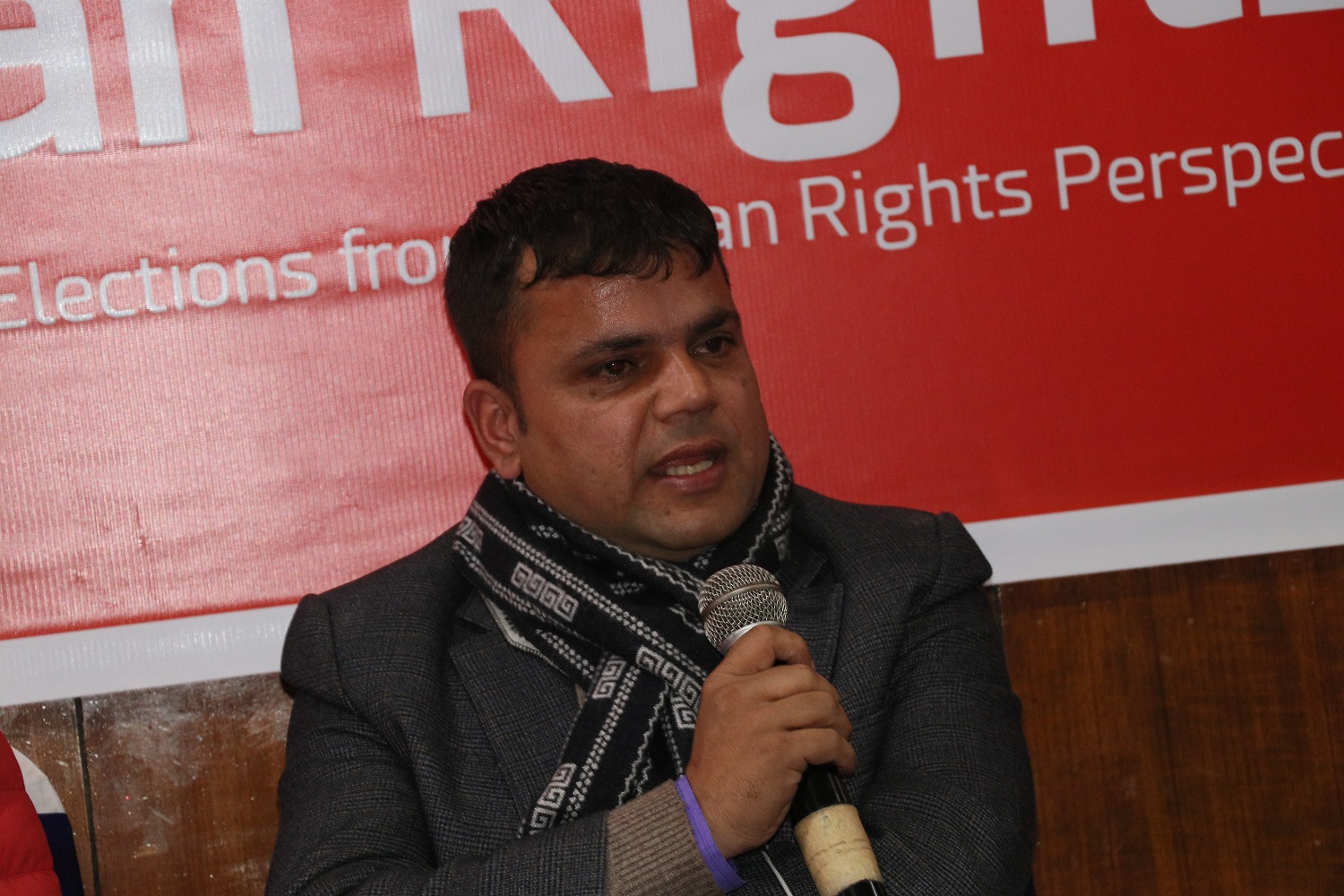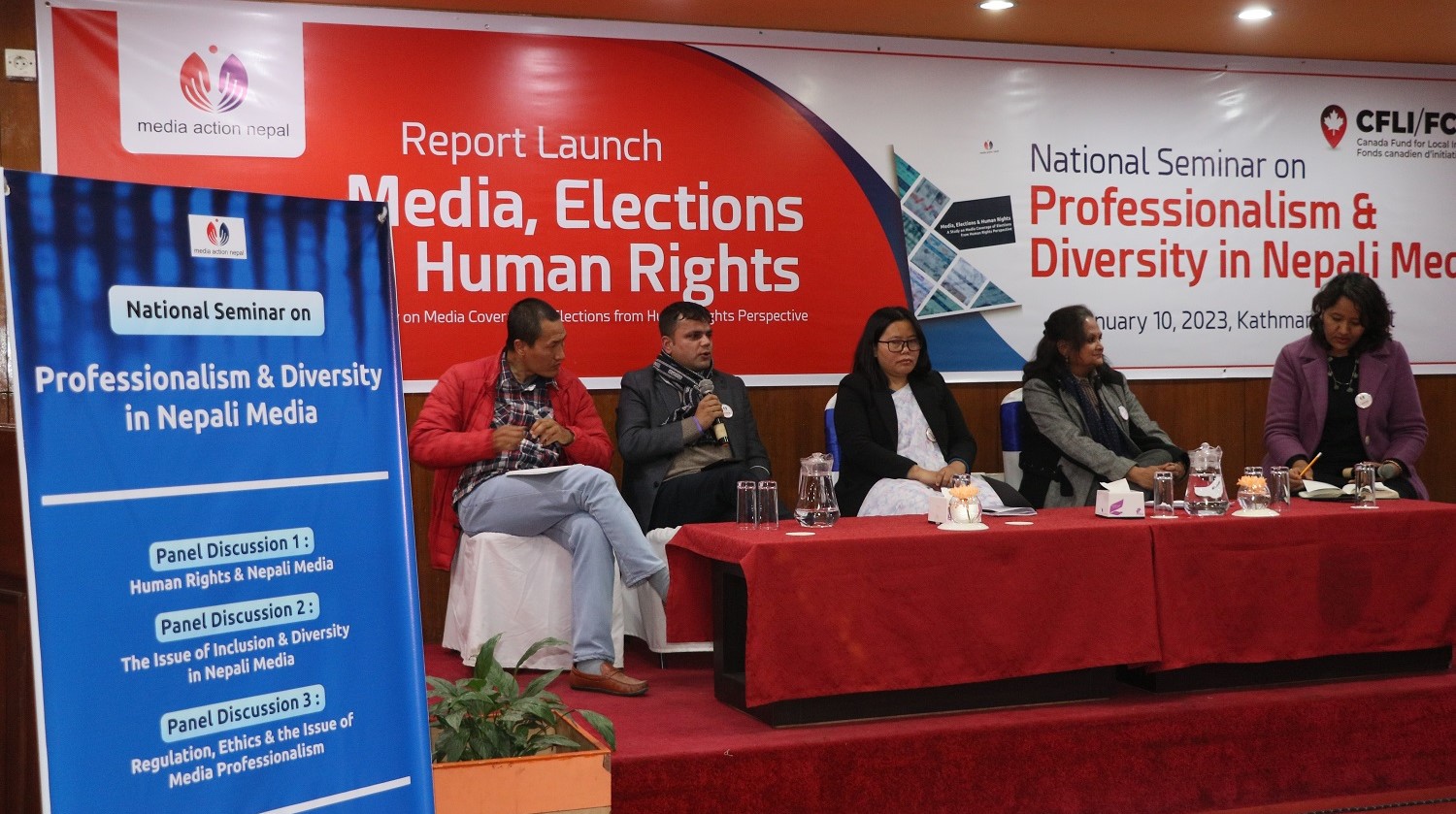
Media experts call to maintain ownership transparency and editorial integrity
KATHMANDU/January 16: Speakers of a special panel discussion on regulation, ethics and the issue of media professionalism, have called on stakeholders to maintain ownership transparency and editorial integrity to promote professional and independent journalism in Nepal.
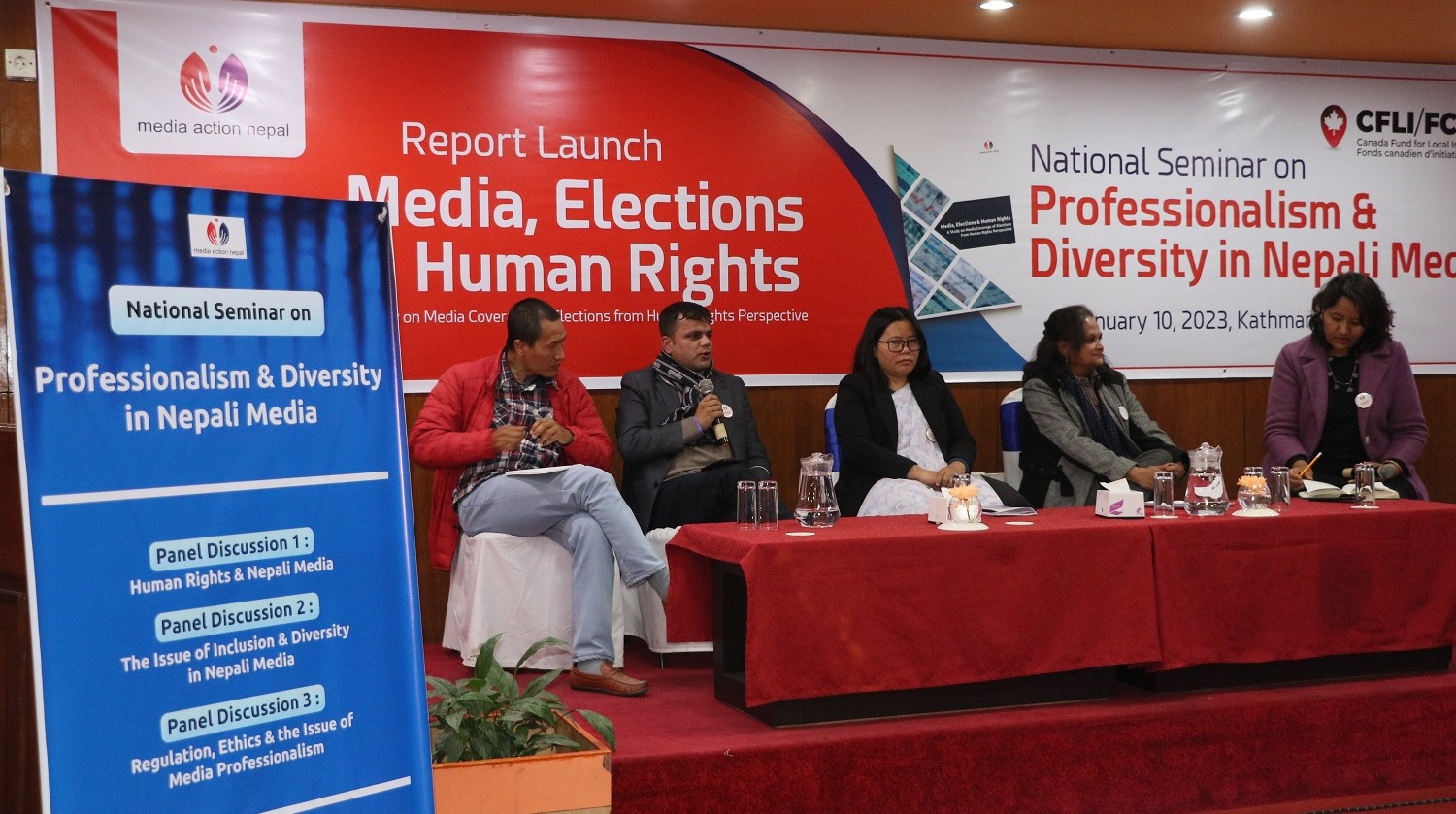
They were speaking during the national seminar on “Professionalism and Diversity in Nepali Media” organized on January 10, 2023 in Kathmandu by Media Action Nepal with support from the Canada Fund Local Initiatives (CFLI).
Namrata Sharma, Senior Journalist, Harsha Man Maharjan, Researcher at Martin Chautari, Kamal Dev Bhattarai, Editor of The Annapurna Express and Bimala Tumkhewa, President of Sancharika Samuha shared these observations and insights in the panel moderated by Sunita Nhemaphuki, Founder at R & D Innovative Solution.
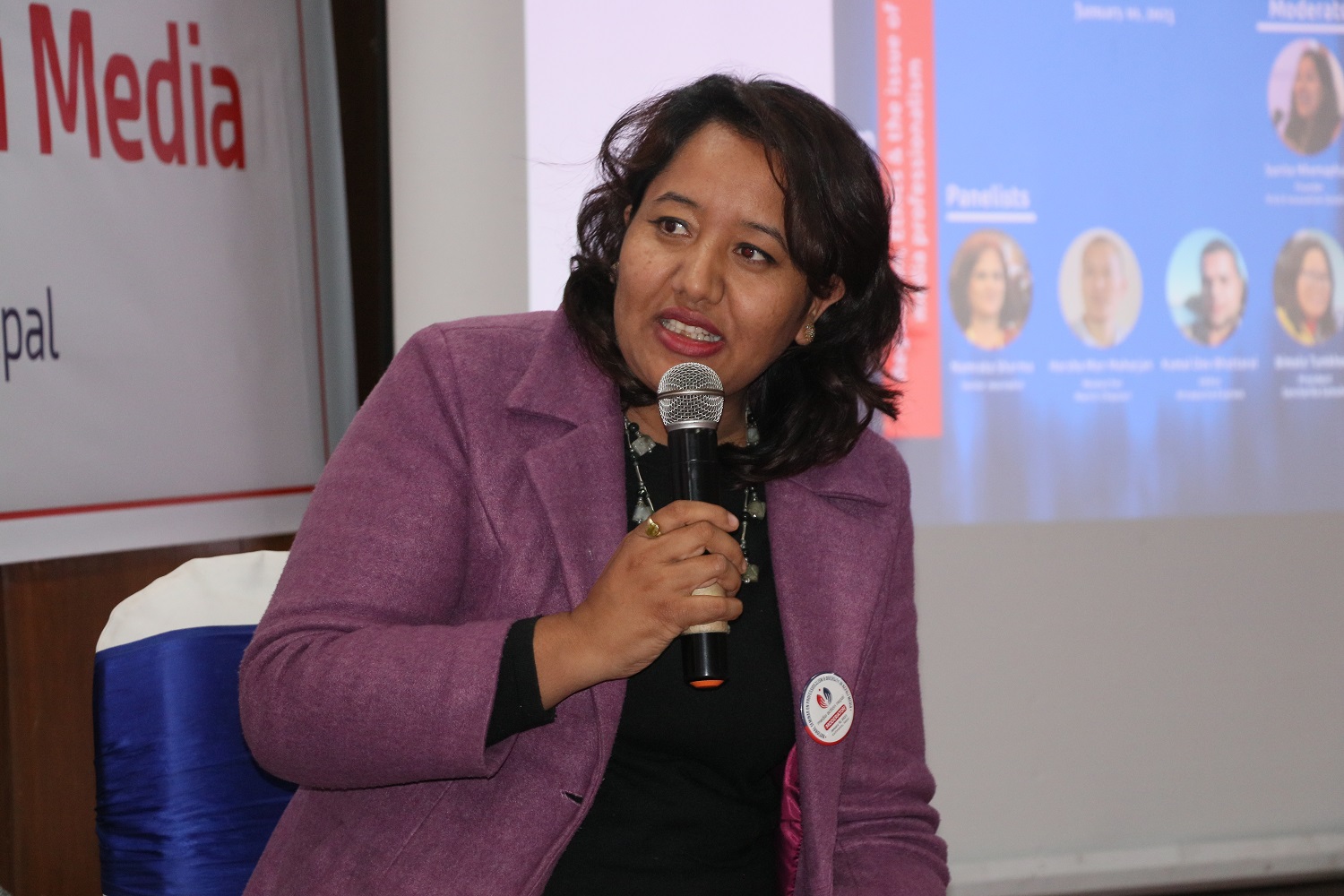
Observing that Nepali media has become more professional after 1990, Maharjan said that media had in fact become more commercialized after 1990. He also pointed out the need to define what professionalism in the media meant. He also noted a lack of media reporting. Nepali media questions others but not themselves. The public does not know where major media have invested, what their background is or how their ownership operates. There is no media transparency which, he thought, the Ministry of Communication and Information Technology needed to take steps to mitigate.
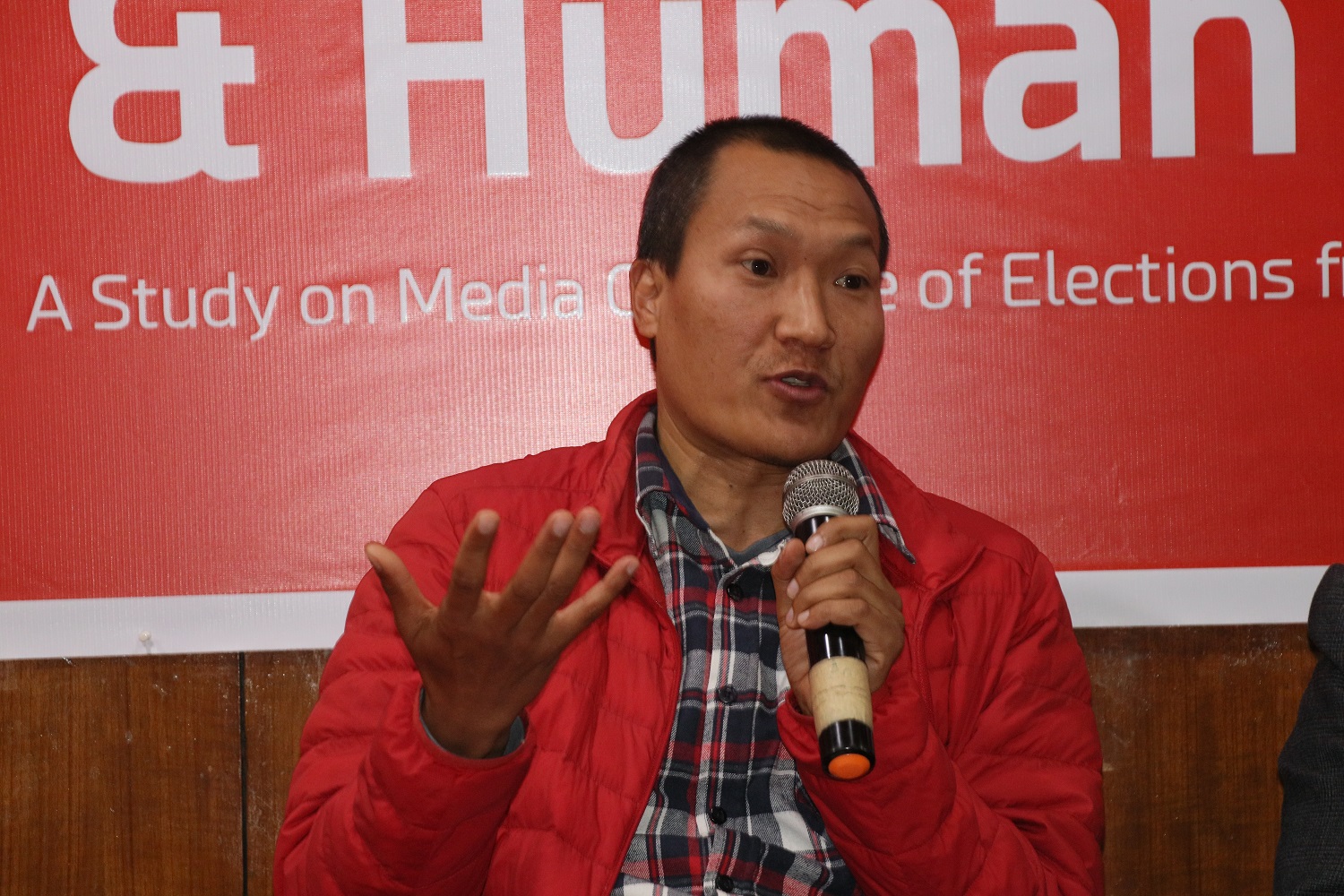
Disclosing that there were many women journalists who are capable of leading newsrooms and media organizations, Tumkhewa lamented that not many women have been given those positions. “The few women that are at the top are those in self-run media in districts outside Kathmandu Valley. Mainstream national media published from the capital still have not given leadership space to women. And women from marginalized communities are even more under-represented. This would change a lot if the existing laws were implemented,” she added.
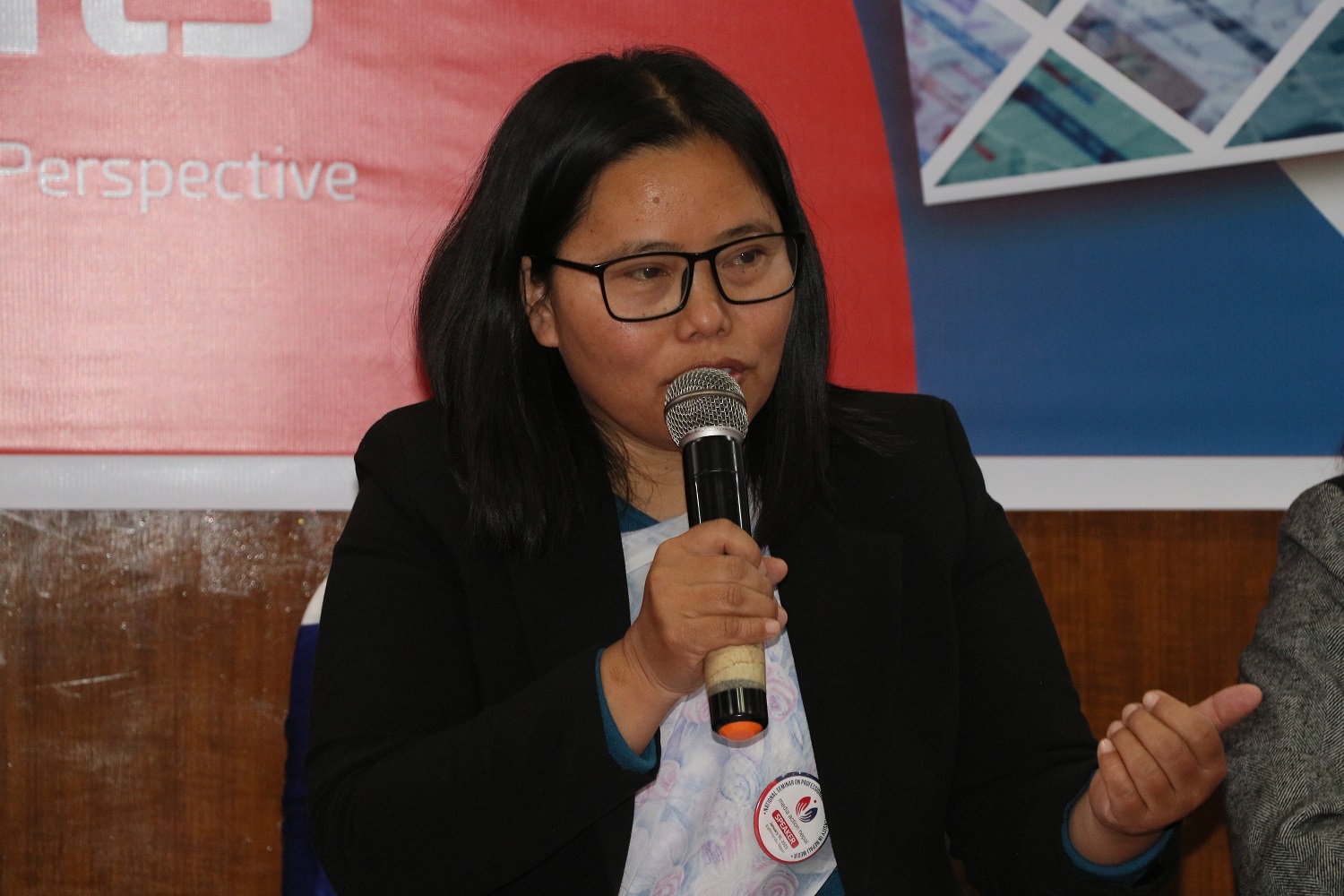
Sharma has observed many changes since the time she started journalism in the 1990s to now but has also seen that the basic things have remained the same. One thing to note, she said, is that real professional journalists had not found space in the media. There is a need for journalists to look inward and judge their own work and professionalism. She further noted that journalists should not be advocates. They should only present the facts for other social actors to take up. But in Nepal, journalism started from mission journalism and taking advocacy and journalism together is what has enabled the media to bring change. Nepal’s geo-political situation also requires it to balance the north, south and west and she said that journalists needed to understand these complexities when covering issues. “Nevertheless, there was no reason to be pessimistic and progress had been made in the fronts of professionalism and diversity,” she added.

Stating that media’s lack of diversity was due to structural issues, not intentional bias, Bhattarai asked all to remember that Nepali media’s continuous raising of political, cultural and social issues have brought changes adding that, still there are improvements to be made. He also said that today’s media relied on either advertisement-based revenue or consumer-based revenue. The former risks compromising editorial integrity while the latter is not enough to sustain media organizations. He accepted that traditional revenue sources were drying up and if Nepali media did not adapt, it would bring a huge crisis in this sector. “Time has come to focus on issues beyond politics and redefine journalism in Nepal,” he recommended.
